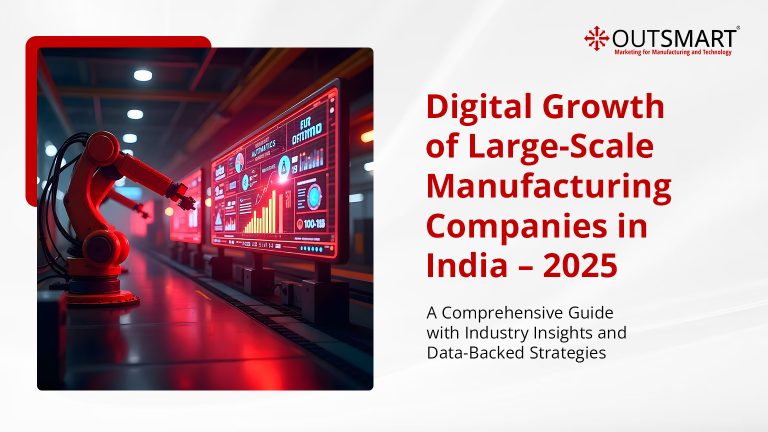Introduction
The marketing world is experiencing transformation, ushering in new trends that will profoundly change the landscape of marketing for manufacturers. For manufacturing companies, these trends hold particular significance, as it influences their B2B marketing strategies. Let’s explore five of the most impactful trends that are revolutionizing digital marketing for manufacturing businesses this year.

1. Embracing Digital Marketing Technologies
In the pursuit of better business outcomes, more B2B marketing companies are recognizing the value of investing in advanced technologies such as artificial intelligence (AI). A digital transformation is no longer an option but a necessity to meet the evolving needs of customers, who are increasingly becoming digital natives. By prioritizing digital-first strategies, businesses can enhance their marketing efforts and stay ahead of the curve.
Case in point – Think of an event that you are participating in and you wish to plan the entire marketing around it. By adopting marketing technology software, planning, outreach, engagement and tracking can be done effectively.
2. Leveraging AI and Predictive Analysis
Another major trend in 2023 is the integration of AI and predictive analysis into marketing strategies. This powerful combination can optimize business performance, increase reliability, and ensure the safety of valuable assets. Leading B2B companies are already leveraging AI to analyze data and predict outcomes, resulting in substantial cost savings. By detecting anomalies and errors early on, predictive analysis can prevent equipment failures and process inefficiencies.
Case in point – Marketing practices such as digital search and advertising, social media interaction, mobile tracking and engagement, are increasingly powered by scalable and intelligent algorithms.
3. Interactive and Advanced CRM Platform
Investing in an advanced customer relationship management (CRM) platform is crucial for enhancing digital marketing efforts. An advanced CRM system offers various benefits, such as email marketing automation and improved customer retention. By leveraging CRM capabilities, businesses can generate new revenue streams and strengthen their marketing strategies. Most manufacturing companies adopt an advanced CRM platform to enhance their digital marketing efforts.
Case in point – A prospect may have been spoken to by different people in your organization. Today’s CRM is far more intuitive and intelligent, and a single source of truth when it comes to customer information. It can easily help you get an idea of who has engaged with the prospect and what has been communicated. This builds continuity in engagement.
4. Integrating into a hybrid marketing model
The future of business lies in creating a hybrid landscape that combines digital and offline marketing strategies. As virtual events and shows gain widespread acceptance, B2B businesses will tap into this potential audience by adopting hybrid marketing strategies. The convergence of digital and physical experiences will allow companies to reach a wider audience and maximize their marketing impact.
Case in point – One of the best ways in which manufacturing companies do this is to participate in industry trade shows and conferences, showcasing their products and engaging with potential customers in person. Simultaneously, they leverage digital channels to promote their presence at these events, creating pre-event buzz and capturing leads.
5. Harnessing the Power of Influencer Marketing
Influencer marketing has become a significant trend in digital marketing for manufacturing businesses in 2023. Collaborating with influential individuals in the industry can help manufacturers reach their target audience more effectively and build brand credibility. By partnering with relevant influencers, manufacturing companies can leverage their expertise and social media presence to promote their products or services.
Case in point – This trend involves identifying key influencers within the manufacturing or related sectors, establishing partnerships, and co-creating content that resonates with the influencer’s audience. By leveraging the reach and authenticity of influencers, manufacturers can increase brand visibility, generate leads, and drive conversions.
Conclusion
Embracing these transformative trends in digital marketing can have a profound impact on manufacturing businesses. From investing in cutting-edge technologies like AI to leveraging predictive analysis and empowering revenue operations, businesses can stay ahead of the competition. Additionally, advanced CRM platforms and the embrace of hybrid marketing strategies will amplify their marketing efforts and drive sustainable growth. As we navigate the evolving digital landscape, these trends will shape the future of B2B marketing for manufacturing companies.







